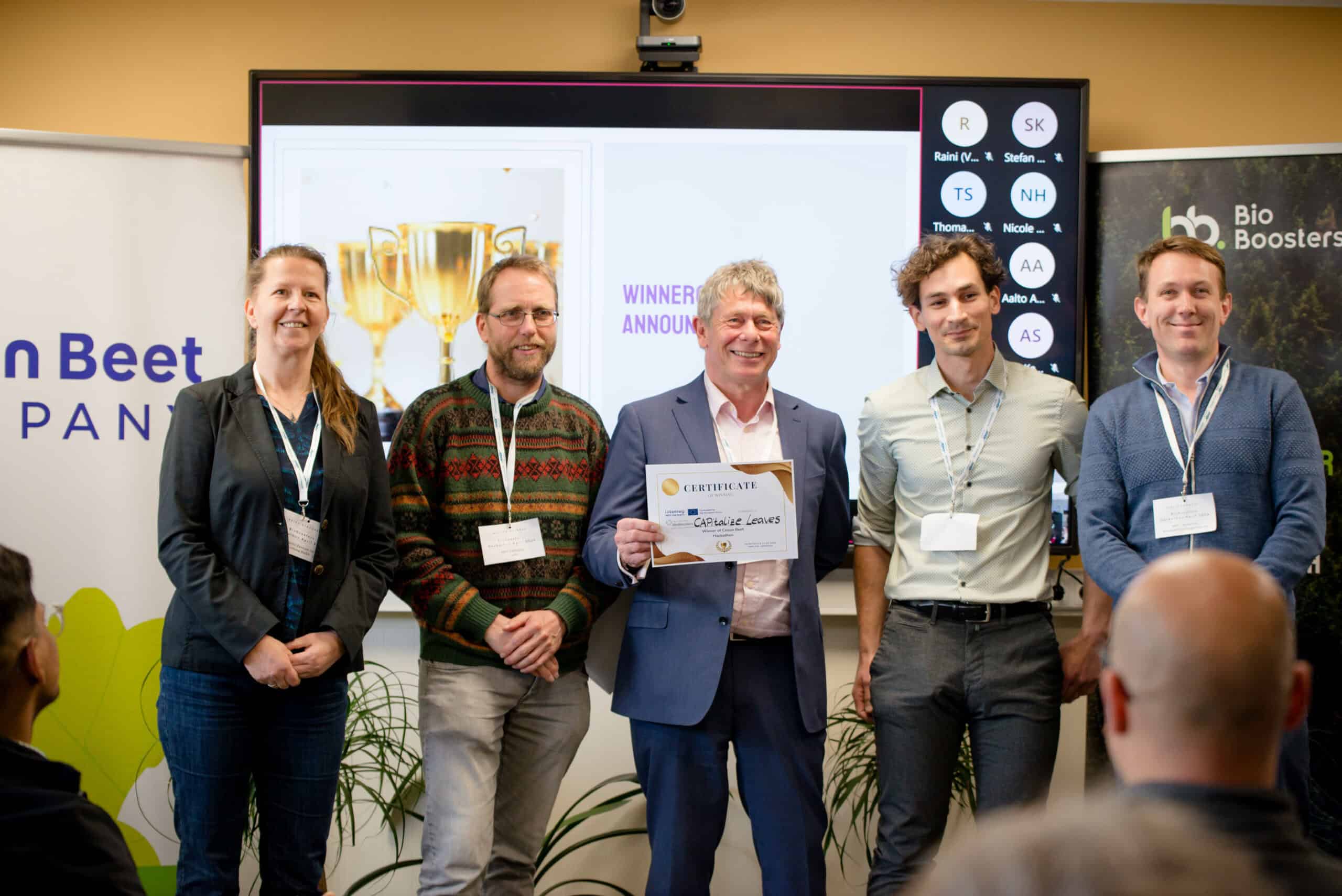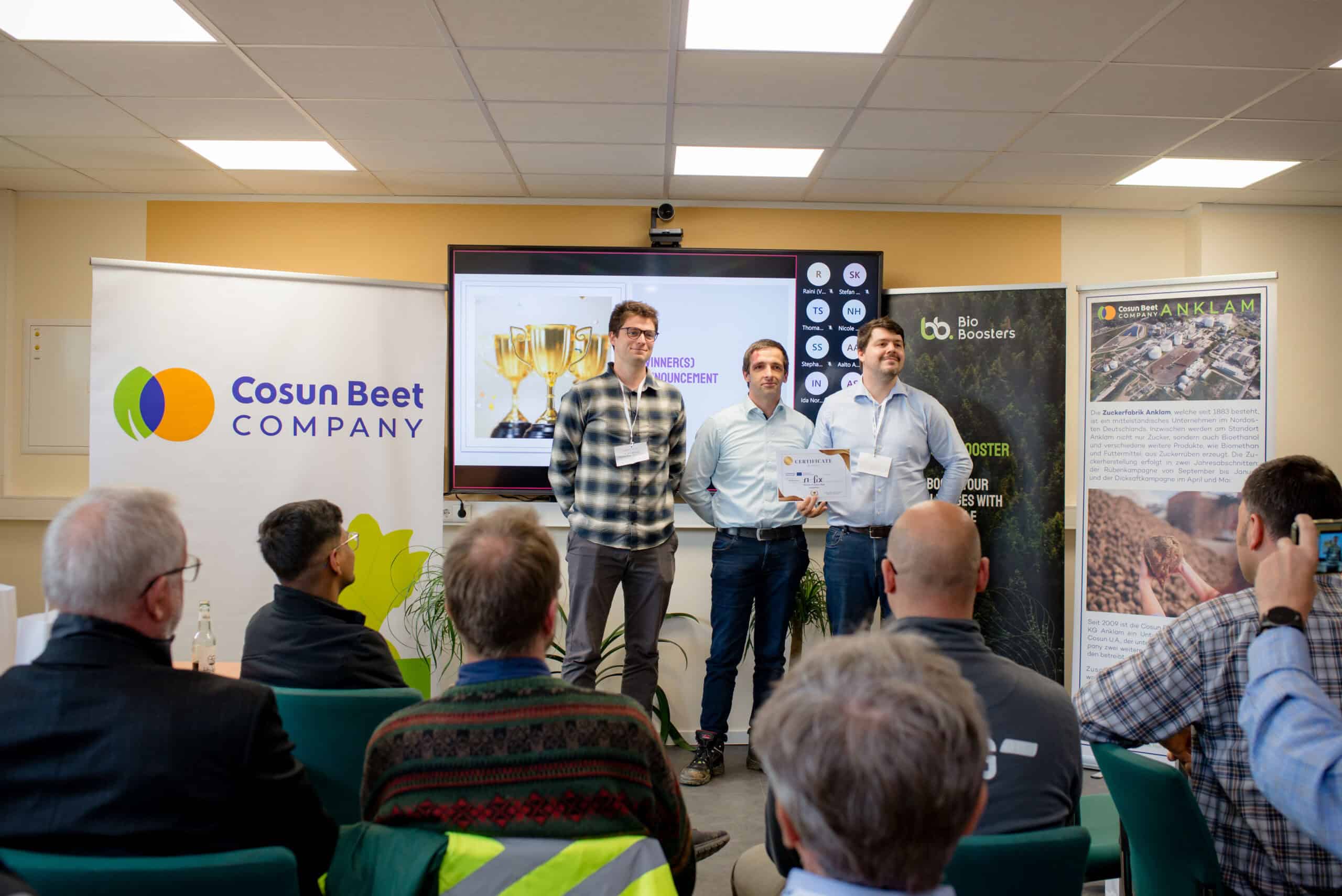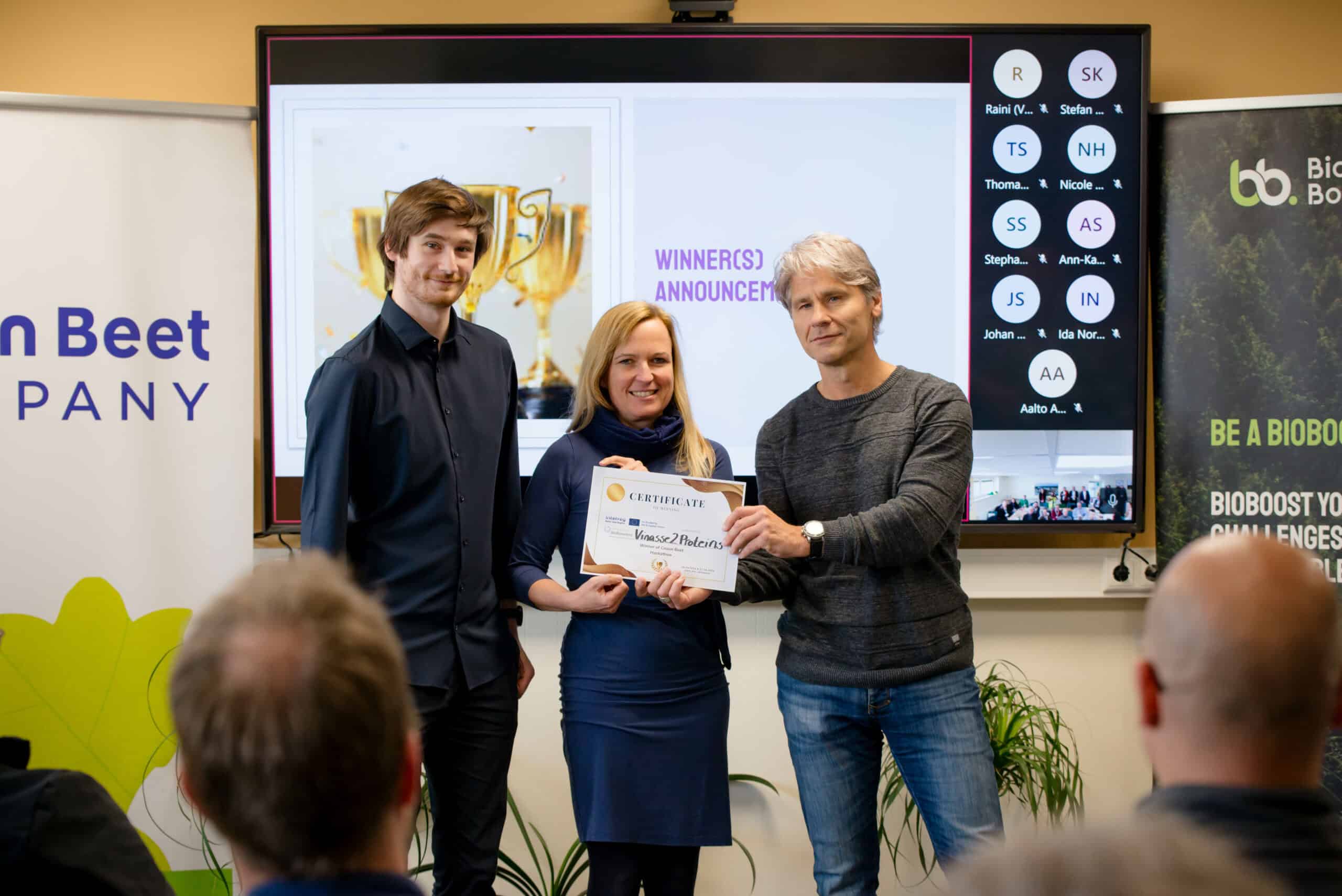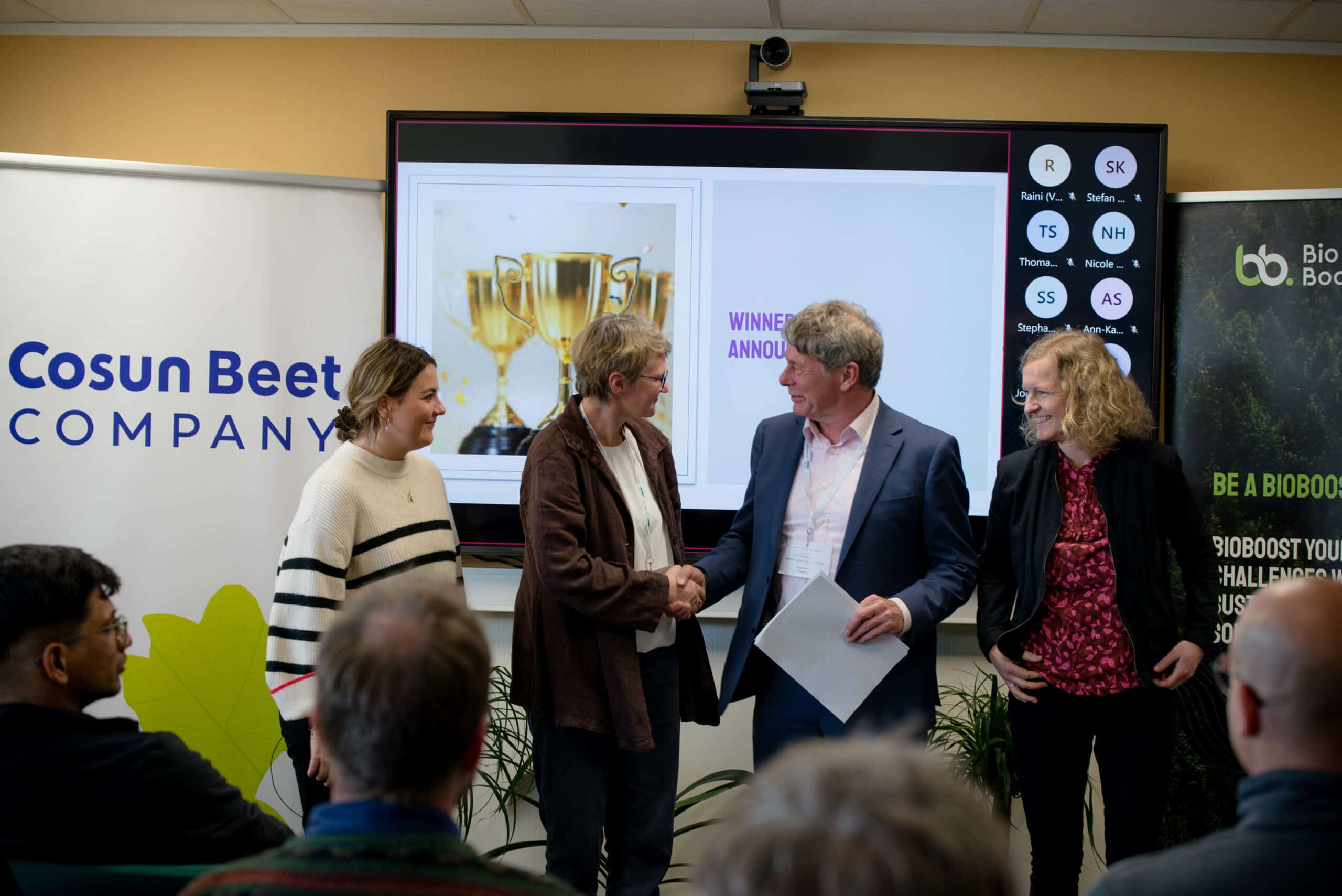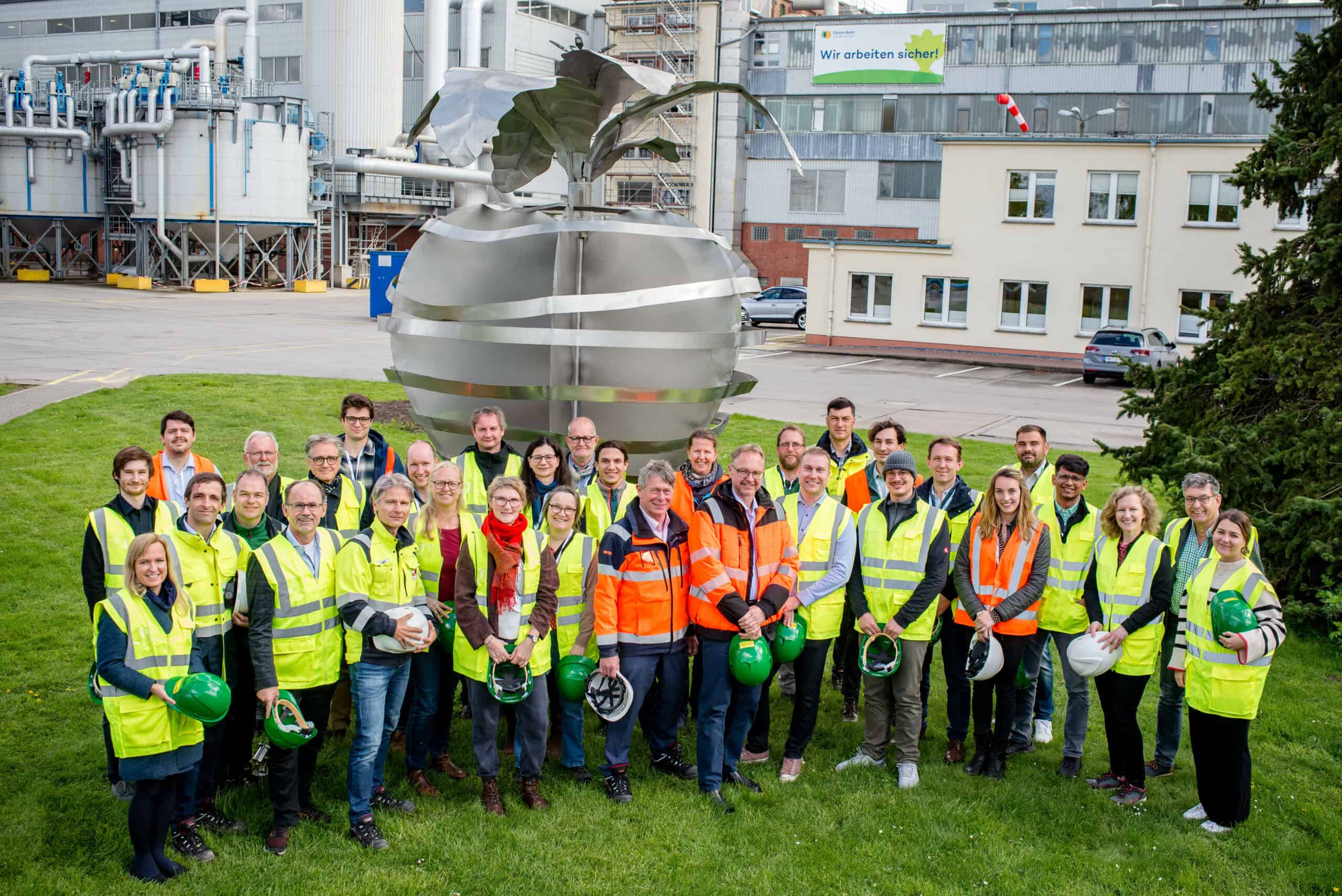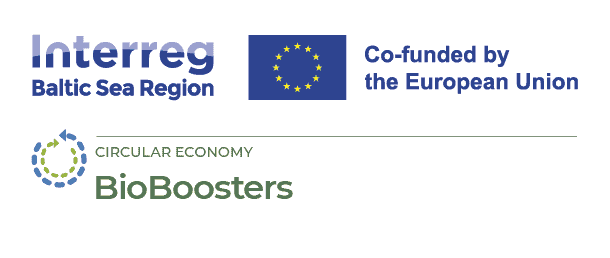
The story about Cosun Beet Hackathon
10 May 2024
Cosun Beet Hackathon
Bringing together eight teams, six jury members, 12 mentors, and organizers from across the Baltic Sea Region to address Cosun Beet’s challenge of converting sugar beet residues into valuable resources. The goal of the Hackathon was to identify solution providers capable of offering innovative concepts, technologies, and equipment to effectively utilize the specified residues.
Cosun Beet Company’s Anklamsite currently processes sugar beets into white sugar, bioethanol, and biomethane, generating various biogenic residues. The objective is to transition the factory into a sustainable green biorefinery, expanding its product range to cater to diverse markets. By exploring new technologies, solutions, and partnerships, the company aims to transform these residues into valuable resources, thereby providing sustainable and eco-friendly products for a multitude of applications.
After issuing an open call for solutions and undergoing a development phase with selected teams, the Cosun Beet Hackathon took place in Anklam, Germany on April 16-17, 2024. Learn more about the process through an interview with Gudrun Mernitz from WITENO GmbH, who served as the coordinator of the Cosun Beet Hackathon.
What makes BioBoosters Hackathon unique?
Originally developed at Jamk University of Applied Sciences, the BioBoosters Hackathon concept has proven to be very effective when it comes to initiating a business-orientated R&D collaboration. As organisers, we work with a very business-oriented approach and try to offer a lean and efficient process for all participants. The process works flexibly online or hybrid with the use of professional digital platforms and the facilitation of online collaboration and collaborative learning..
The starting point of each hackathon is a real challenge from a relatively large company that is looking for partners, expertise and solutions to this challenge. The fact that the focus is purely on one company and thus on one challenge distinguishes the Bioboosters Hackathon from models that we (WITENO) have organised so far, where several challenges from different companies have been introduced. This special feature of addressing ONE challenge from ONE larger company is an interesting premise for SMEs and start-ups as well as for research teams with an interest in the transfer of their scientific findings into practice. With the BioBoosters hackathon and its open innovation process they have the opportunity to test and develop their idea in dialogue with a potential customer and a variety of experts. For experts participating as mentors from universities, public institutions and interest groups, the process provides the opportunity for in-depth industry dialogue and insights into the drivers and barriers to change that companies face. It is a learning and networking opportunity that mentors can also use to initiate company-orientated (international) R&D collaborations.
Our success rate in attracting idea submitters and ultimately realising new solutions is high, as both the companies of the challenge providers and the teams of solution providers benefit from the win-win situation. We have succeeded in attracting very talented teams, often representing innovative and growth-orientated SMEs, to participate in the hackathons, which means high added value for our customers, the challenge providers. What sets us apart from many hackathons is a strong business orientation and, of course, a cross-industry international network that connects leading bioeconomy innovation ecosystems across the Baltic Sea Region.
What is the impact of the BioBoosters Hackathon?
Thanks to the Cosun Beet Hackathon, Cosun Beet found several highly innovative ideas how to use the side streams of the sugar production. Cosun Beet will now test at least three of these ideas in pilot projects with the solution providers. The hoped-for more or less rapid implementation of these solutions will contribute to a significantly better utilisation of resources and support Cosun Beet’s goal of becoming a green biorefinery. This would help to make the bioeconomy even more circular, which in turn would have a positive impact on the carbon footprint.
The BioBoosters Hackathon is a highly structured process that can generate a large number of ideas and solutions in a manageable time frame. This time-saving process, which involves industry experts, experts from research and science institutions, and technology companies, is very favourable, as it exposes Cosun Beet to diverse perspectives. Numerous factors contribute to the utilization of side streams from sugar production. Nevertheless, gauging the effectiveness of various approaches in addressing the challenge of transforming sugar beet residues from waste into value proved to be challenging. In this respect, Cosun Beet is very satisfied with the outcome of the hackathon, as they were able to gain a lot of knowledge about the effective use of side streams that they did not have before, thanks to the excellent solutions provided.
What kind of help you got from the international partnership in organizing a BioBoosters Hackathon?
By engaging our international partners in the open call, we expanded our reach and success rate. This enabled us to offer Cosun Beet a greater variety of innovative solutions than we could have developed independently.
Among the 25 applicants who submitted solutions, seven were from international backgrounds. Our primary means of reaching them was through our project partners.
Our partners also helped us to find international experts to mentor some of the teams during the hackathon. The BioBoosters network played a crucial role in transforming this into an international Hackathon, a fact reflected in the results. Indeed, the international dialogue significantly enhanced the outcome of the process, fostering better collaboration and synergy.
What lessons would you like to share with other Hackathon organizers?
Time resources are crucial – while hackathons provide a fantastic opportunity for innovation and networking, they can also be challenging for organisations, particularly in manufacturing where day-to-day operations continue. Our success depended on having a dedicated point of contact with the challenge provider from the outset. This commitment was decisive for the rapid processing of questions and tasks. Overall, it is a great advantage if the challenge provider is motivated to reorganise its processes in line with the circular economy.
The challenge can be formulated in very different ways. If you define it very broadly (as in our case: 6 side streams), you have a great chance of reaching many solution providers. However, this also means that you have to deal with a large number of submissions and, as a result, a large number of selected teams. This greater effort must be planned accordingly (both on the part of the organisers and on the part of the challenge provider).
Start-ups in particular may have a problem presenting their solution to the public. In case of doubt, they may withdraw if potential competitors on the market also submit solutions. You should communicate openly and clarify the situation from the outset.
Also, trusting the process is crucial. As organizers, our role is to bring together individuals interested in the subject and facilitate their collaboration on the challenge at hand. Ensuring relevant expertise is accessible and connecting diverse skills to foster open innovation dialogue is imperative. Additionally, it’s essential to ensure a smooth process and provide necessary information, enabling all participants to focus on addressing the challenge within their limited available time.
Interactive map showing pilot locations. Use the arrow keys to move the map view and the zoom controls to zoom in or out. Press the Tab key to navigate between markers. Press Enter or click a marker to view pilot project details.






